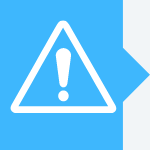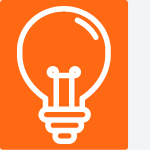What does a CRM system do?
CRM systems help your sales team log communications, manage leads and sometimes build marketing campaigns. In other words, a CRM allows you to build and maintain relationships with your customers and other businesses.
Organizations use CRM solutions for various reasons. Initially, though, the CRM industry was geared primarily toward sales and PR professionals, offering a convenient way to store information and track communications with customers. Today, CRM solutions straddle several areas, such as marketing, analytics, communication and light project management. Some CRM systems even have built-in chatbot and calling capabilities, letting your sales reps communicate with clients directly from the system.
What are some examples of CRM software?
CRM software is any tech solution that helps businesses manage communications with their current and potential clients. Leaders in the CRM software industry include Salesforce, Zoho and HubSpot.
What makes a CRM system 'open source'?
When software claims to be "open source," it typically means that some or all of the source code is available to users for review and modification. Developers and programmers who want the ability to customize their CRM software extensively often opt for open-source solutions.
What are the differences between ERP, CRM software and marketing automation?
ERP software has some overlap with CRM software, so it's understandable that there's frequent confusion regarding the difference between ERPs and CRM software.
ERP software is intended to manage nearly every aspect of a business's operations, including accounting, human resources, inventory and analytics. As such, CRM capabilities are often built into ERP software. CRM software focuses specifically on managing customer information, logging interactions with clients and storing sales-related lead details. Marketing automation, meanwhile, is what businesses use to streamline, automate and measure marketing tasks to build their revenue.
Should I consider a free CRM?
The obvious perk of using a free CRM is that it does not cost anything. Systems like HubSpot move the needle when it comes to what free CRM software can offer, improving business processes and organization at zero cost.
Free programs typically limit the number of users, integrations and campaign creation opportunities. They give you just enough features to show you that you may need more. In other words, they are good starter programs to use while you figure out exactly what you want.
However, you may encounter poor security features or a lack of automatic backups. Free programs can be breached or lost, and they don't offer much support for growing companies.
What other tools integrate with CRM software?
Sales and marketing add-ons are the most common integrations for CRM solutions. Reporting and tracking tools are also popular. Direct integrations typically connect most quickly, while third-party integrations require middleware to facilitate the exchange of data between the CRM, the operating system and other applications. Custom API integrations typically take longer because the integration has to be built.
How do I get my team on board with CRM software?
It's important to communicate to your team the benefits of a CRM system. Include your staff in the search process so you can find a solution that pleases everyone. Before and during implementation, make sure your team gets all the training they need so they're comfortable using the program. Talk to your employees about their concerns, and encourage them to ask questions so the training representative can address them. You want your team to feel that they can use the CRM system comfortably and proficiently.
What is a CRM analyst?
A CRM analyst examines your consumer data to help your business make the best sales and customer service recommendations. These experts help you understand your customers' needs and interests so you can determine the best ways to market to them.
What are the disadvantages of CRM software?
As with any business strategy, there are some challenges in using CRM software. First and foremost, some systems may not be affordable for small business owners. In addition to being pricey upfront, many CRM services have hidden costs. For example, you might have to pay for system administrators, software developers, maintenance and data backups on top of the CRM's base fee. Read the fine print and ask the CRM vendor about any hidden costs before deciding whether you can afford a certain system.
Your CRM could also negatively impact your business if it shuts down or fails. You run the risk of losing all your records, which can hurt your business financially and let your customers down. Also, depending on the CRM's learning curve and your team's experience, training your staff to use the CRM effectively can be a long and tedious journey.
What is the first step in the CRM process?
The first step in the CRM process is research. Take time to understand your target audience and how you should approach them. You want to know their interests, how they prefer to be contacted, their demographics and what forms of communication they respond to the best.
Then, divide your targets into groups so you can market to them directly according to their preferences. Gathering and grouping your leads is an important initial step in the CRM process, allowing you to better understand the marketing strategy you should create so you can successfully turn them into customers.
How do CRM systems typically handle automation?
You can automate three kinds of workflows within your CRM: marketing, sales and service roles. CRM automation allows your program to perform certain tasks repeatedly so an employee doesn't have to do them manually. This not only saves time and streamlines your team's workflow, which can boost your company's overall productivity, but it is also especially useful for moving consumers from the knowledge-gathering part of the buyer experience to the stage where they can be molded into a customer.


















 Did you know?: Most CRM services offer free trial periods for new customers, so you can test-drive the system of your choice without the risk of sinking money into a product that ultimately doesn't work for you.
Did you know?: Most CRM services offer free trial periods for new customers, so you can test-drive the system of your choice without the risk of sinking money into a product that ultimately doesn't work for you. Tip: To ensure you get the most out of your CRM system, outline what you're looking for and need before buying. This will keep you from overpaying for features you'll never use.
Tip: To ensure you get the most out of your CRM system, outline what you're looking for and need before buying. This will keep you from overpaying for features you'll never use. Key takeaway: CRM software is a critical part of your sales and marketing teams' daily operations, which serve as the engine of your revenue. Keep detailed notes as you explore various platforms, and invite other team members to join demos and take advantage of free trials.
Key takeaway: CRM software is a critical part of your sales and marketing teams' daily operations, which serve as the engine of your revenue. Keep detailed notes as you explore various platforms, and invite other team members to join demos and take advantage of free trials.